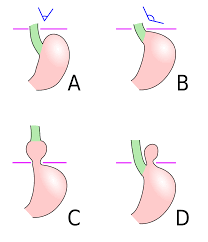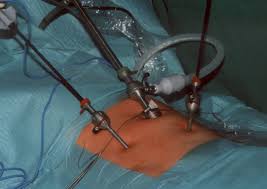CALL TODAY 646-846-1136 | EMAIL
Causes & Symptoms of Hernias
Hernias are widely common, with almost 2% of the population suffering from hernias. This may seem like a small number, but in the United States of America alone that adds up to around 600,000 people dealing with hernias. But what exactly is a hernia? What causes so many people to have hernias? And how does having a hernia affect you?
What is a Hernia?
A hernia is a protrusion of soft tissue, usually an organ or fat tissue, through the muscular lining that typically would hold it in place. One of the most common types of hernias is an inguinal hernia. In this case, the abdominal muscles that hold the intestines in place can grow weak and develop gaps that allow a small section of the intestine to jut out. This segment of the intestine can eventually become swollen, painful, and cause discomfort during regular tasks.
Many people complain of pain associated with bending, lifting, and coughing, as all of these activities create pressure on the herniated section of the abdominal cavity. Although a hernia itself may not be hazardous initially, it can lead to many other medical complications.
What Causes Hernias?

When the muscular lining that keeps organs in place grows weak, the integrity of the muscular “wall” can fail, creating weak spots. These spots can then become susceptible to internal structures pushing out and herniating. This herniation typically happens initially during a period of intense pressure. For example, exerting oneself while lifting an object can cause pressure in the abdominal cavity and result in a hernia.
Prolonged, chronic coughing can weaken the structural muscles in place, with repeated strain reducing the integrity of the muscle. Additionally, a surgical incision, if not provided enough time to heal properly, can facilitate a weak spot in the muscular lining and allow for herniation.
Congenital problems can also result in herniation in cases where the abdominal wall does not fully develop in utero. There are a number of complications that can increase the risk of herniation. This includes pregnancy, heavy lifting, rapid weight gain, chronic coughing, constipation, and recent surgical activity in the surrounding area.
What are the Symptoms of Hernias?
The most commonly reported symptom of a hernia is pain. The exact nature of the pain experienced varies from person to person, but many people note greater pain when additional pressure is applied to the abdominal region. This includes lifting, bending, coughing, or other physical exertion with straining.
Hernias are not always found as soon as they occur. Usually, it takes repeated pressure and exertion for the hernia to be noted. After a number of years, a hernia is usually identified correctly by self-assessment. A hernia does not correct itself, but would instead require surgical treatment to repair the damage.
Complications of Hernias

Although a hernia on its own does not require emergency treatment, there are a number of situations in which urgent action may be required. Herniated areas may not receive the blood supply they require and are at a higher risk of infection. If a hernia has become swollen, warmer than usual, or extremely painful, this can be a sign of infection. In addition, depending on the location, a hernia can cause obstruction to the bowel and digestive tract. This can quickly become an urgent situation requiring emergency medical correction.
Do you think you might have a hernia? Call the best surgeons in NYC to discuss your case and your treatment options.
———
References:
https://www.webmd.com/digestive-disorders/types-of-hernias#1
https://www.webmd.com/digestive-disorders/understanding-hernia-basics

